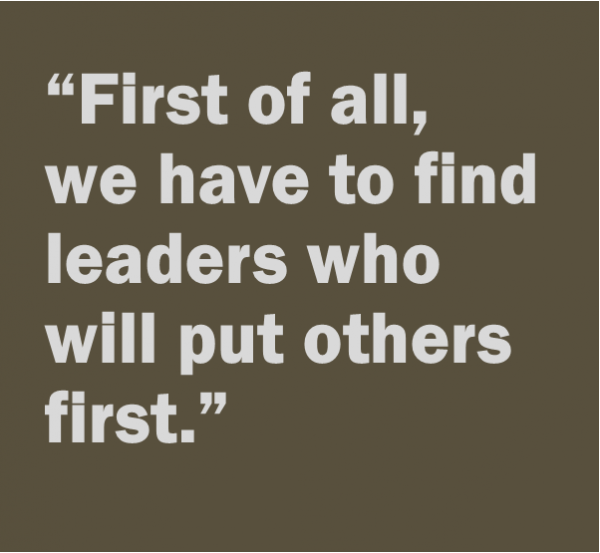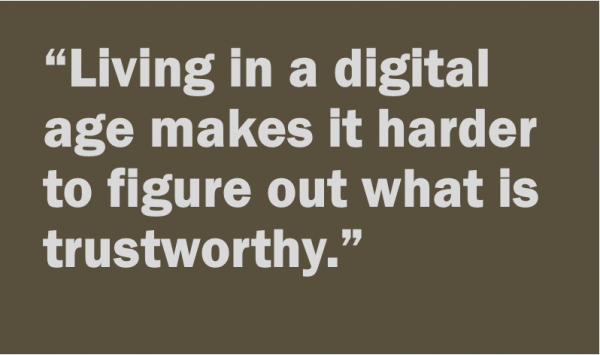PERSPECTIVE: Can Trust be Restored?
/by Peter F. Eder The public’s trust in just about everything continues to be at historically low levels and there is every indication this trending will continue its downward slope. Not just trust in federal government action but all levels and branches of government, as documented by any number of ongoing Pew Research Center and Quinnipiac Polling Institute studies.
Just one example would be the Pew Research Center’s November 23, 2015 report, entitled: “Beyond Trust: How Americans view their government.” The top line finding was that fewer than three-in-ten Americans have expressed trust in the federal government in every major national poll conducted since July 2007 – the longest period of low trust in government in more than fifty years. The survey reported that increased distrust in government exists for every party, across the demographic spectrum and generation clusters, and extends to diminished belief in government fairness.
And while distrust is perhaps most manifest these days in politics, the same billowing distrust exists when respondents are measured about credibility in media outlets, financial institutions, religious organizations and seemingly any private or public institution.
Living in a digital age also makes it harder to figure out what is trustworthy. When it is easy to find confirmation for almost anything ordinary, grave or absurd, with contradictory information and rival sources, determining trustworthiness is truly challenging.
All this seems based on the continual distortion of truth, no sense of compromise, and the polarization and self-serving nature of almost all collective and individual behavior.
If we accept this as current reality, the critical question is “How can Trust ever be restored?” Let me suggest what might have to occur. First of all, we have to find leaders who will put others first. It will be individuals who recognize that their neighbors aren’t just the persons who live next to them or who share the same views, values, and interests, but those that inhabit every space around themselves. We need individuals whose personal experience have guided them through tragedy and triumph, without fostering a mindset that they are championing their own advancement.
 To those of us who look to – or up to – them, we need an open, inquiring, compassionate mind. We need to set aside the rush to judgement, to listen to all sides of an issue, to take the time to search out the truth, to separate the hype from the reality.
To those of us who look to – or up to – them, we need an open, inquiring, compassionate mind. We need to set aside the rush to judgement, to listen to all sides of an issue, to take the time to search out the truth, to separate the hype from the reality.
In time past, these attributes ensured the common good. Who will take the first leadership steps and who, as followers, will listen, encourage and emulate them? Or is it sadly already too late?
________________________________
Peter F. Eder is a retired marketing executive, AARP Connecticut community volunteer and a founding board member of At Home In Darien, his community aging-in-place organization. Throughout his career, he has been involved with local and national organizations within the communications arena and in responding to acute needs of people in our communities.
PERSPECTIVE commentaries by contributing writers appear each Sunday on Connecticut by the Numbers.
Also of interest: Freedom's Just Another Word For






























